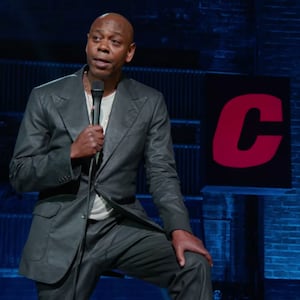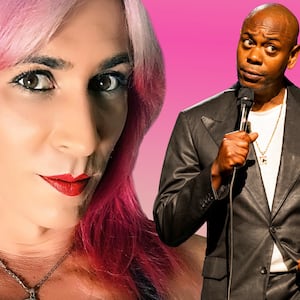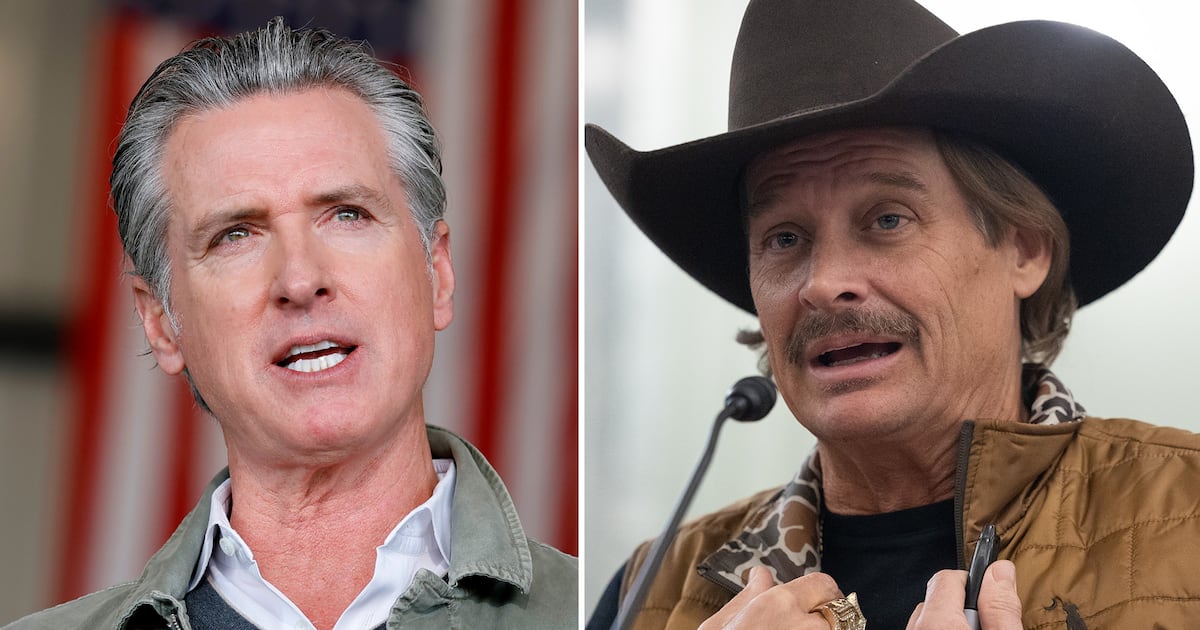This is a preview of our pop culture newsletter The Daily Beast’s Obsessed, written by senior entertainment reporter Kevin Fallon. To receive the full newsletter in your inbox each week, sign up for it here.
The thing that people who decry cancel culture often miss is that the examples they use are people who haven’t actually been canceled. It drives me crazy.
Kevin Hart? We had a conversation about the pain words he used caused, and then he went on to continue to make millions of dollars in movies and TV series. But there is still this idea that he was “canceled” because we had a discussion about how he used the platform that, because he’s a multi-million-dollar movie star, he felt he was entitled to have without consequence. More and more, though, that’s the thing: without consequence.
Cancel culture isn’t real, and neither is consequence.
This has been on my mind ever since I watched, and was baffled by, Dave Chappelle’s new Netflix special The Closer. This is a newsletter about the things I can’t stop thinking about, and this week it’s the brilliant Craig Jenkins column in Vulture that debates Chappelle’s role as a cultural provocateur—especially in context of this new special.
This is a special that acknowledges the past criticism Chappelle has received for homophobic and transphobic jokes, and then doubles down on them like that aforementioned entitlement. As if we’re not evolved enough—or maybe even “too woke”—to get a joke. Or understand that the joke is in pursuit of a heightened observation about culture. Or that the criticism doesn’t matter because he doesn’t value social media and online critics as a valid entity. Or whatever.
It’s all dressed up in “I get it/you don’t” drag.
“Any of you who have ever watched me know that I have never had a problem with transgender people. If you listen to what I’m saying, clearly, my problem has always been with white people,” he says at one point. (A false equivalence between the LGBTQ community and people of color is a favorite refrain of his.) “I’m team TERF!” he exclaims in a sequence defending J.K. Rowling, invoking the term for trans-exclusionary radical feminist, or feminists who are transphobic and do not believe trans women are women.
He addresses the LGBTQ community that has taken him to task over past jokes. The false equivalence and the idea that there are actual repercussions for being transphobic or homophobic return, though from a place of grace: “All I ask of your community, with all humility: Will you please stop punching down on my people?”
Cancel culture isn’t real, but the demand to learn is. And that’s where people like Dave Chappelle fall short. They place the anxiety on opportunity, instead of the point of view and how that reverberates through society. That marquee punchline in The Closer—“my people”—centers around the controversy over rapper DaBaby, who gave a deeply homophobic speech rife with misinformation about AIDS and then was called out for being wrong to do so.
The idea is that we’re so sensitive that artists can no longer express themselves, because if they go too close to the line then paranoid queers will join arms and make it so they can never work again. Not only do they always work again, but that’s such a bad-faith interpretation of what these discussions are about that it’s almost laughable a person being paid tens of millions of dollars to opine on Netflix makes it his mission statement.
It’s not a judgement or assumption on how Chappelle feels or allies to be annoyed by this. My colleague Cheyenne Roundtree spoke to the family of Daphne Dorman, the late transgender comedian who Chappelle talks about in The Closer, who took her own life in 2019. The family is outraged at accusations that Chappelle is transphobic or homophobic. That is important, especially given the discourse—and backlash—he is receiving following the special. But even with that, I’m struggling to understand the value of what he does in The Closer.
Is he whining? That’s a juvenile, reactionary distillation of it. In some regard, yes, he is displeased that what he felt were enlightened thoughts about the trans and LGBTQ community were being pilloried by those who “didn’t get it.” It’s lame that he would devote an act to people who “don’t get it,” but, in some respects, that’s what he’s doing. More than that, though, he’s trying to prove that the why—the why you didn’t get it—is still more interesting than your offense or anger.
But the “why” doesn’t pass muster. It’s not just that the jokes fall flat; the writing in The Closer may be the worst of Chappelle’s career, reliant on an audience reflex to clap and scream at the mention of a scandalous word instead of actually moving them in any way. It’s also not that he doesn’t make points. He does, and they’re uncomfortable in the way he intends them. It’s that, in the end, he’s defensive to the extent that they’re no longer provocative, or even cogent.
I’ll defer to Jenkins’ excellent column for more on this: “In Chappelle’s eyes, these are examples of the mountain-moving power of LGBTQ rage. This framing ignores how each one’s stubbornness in the face of backlash for the awful thing they said only led to more awfulness, how these are stories about refusing to budge when asked for a meager concession by fans who want to support, how each one still sits on the same mountain of cash.”
Look, I acknowledge my own bitterness when it comes to this Chappelle shit. The last time I tried to engage thoughtfully with his comedy and its potential for cultural enlightenment, I received death threats in comments on Instagram posts of my then-newborn nephews. It’s impossible to interrogate any of this because the fandom has racehorse blinders on.
In the years since The Chappelle Show launched, we have coronated him not just as a brilliant comedian, but a cultural arbiter. Therefore his musings aren’t just profound, they’re indisputable. We do that often for comedians. They tell a joke that’s relatable about how we feel about airplane peanuts, and suddenly they speak on behalf of the entire human experience. (I’m being glib, but the point is there.)
Chappelle’s whole thing is saying the things we’re not supposed to say, let alone think, and then making us consider what it says about us that we quiet those parts of ourselves. But what if those things don’t actually have value when they’re articulated? What if they’re just, at face value, wrong?
Saying “this is bullshit” isn’t being too woke, or a hater, or reactionary, or dumb. It’s taking the material on that face value, which is ostensibly what an entertainer like Dave Chappelle wants. Watching The Closer was an uncomfortable experience. Not because what he was saying made me rethink my own thoughts and values. But because of how embarrassingly it didn’t.








